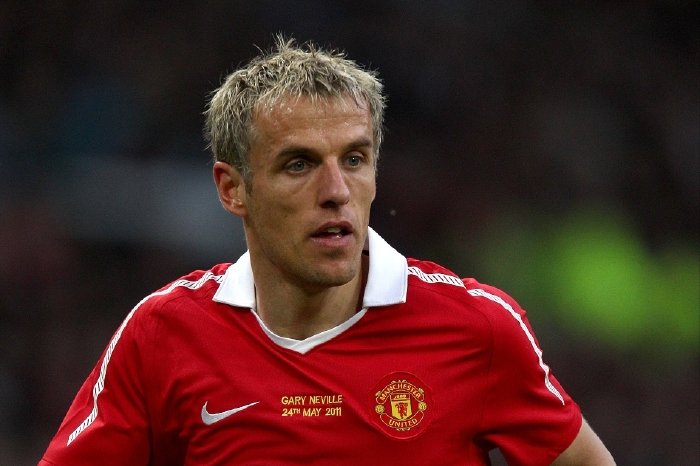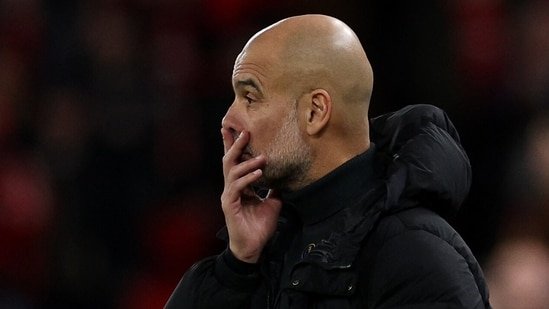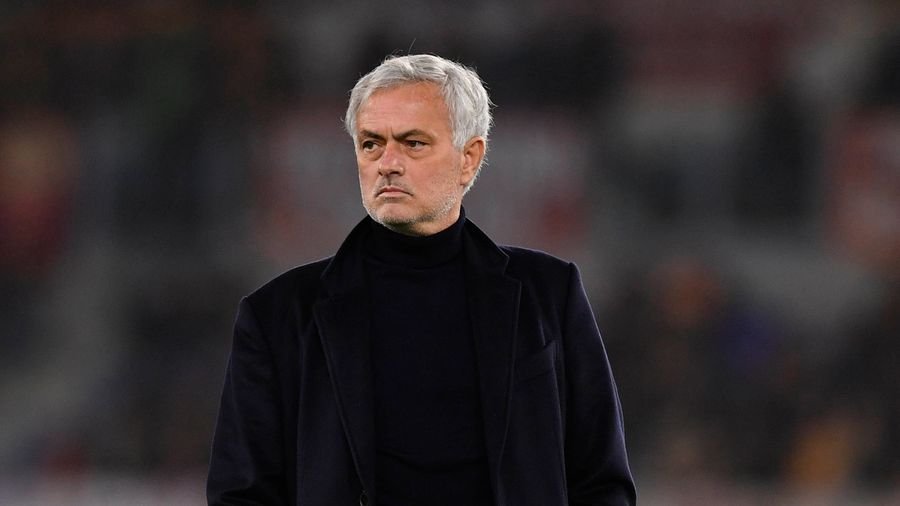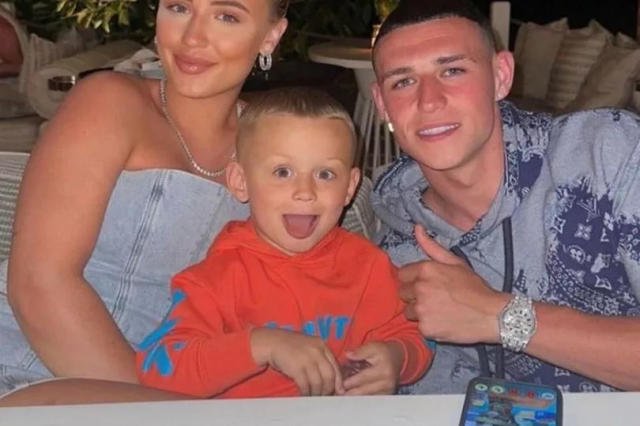Football Lags Behind on Paternity Leave
Football is falling behind in allowing players to take time off to care for their newborns and support their partners. In most jobs in the UK, fathers get at least two weeks of paid paternity leave, but in football, almost no one takes it. Players who try to spend time with their families after childbirth often face criticism.
Haaland’s Exhaustion Raises Questions

When Erling Haaland ended a four-game goal drought by scoring against Leicester, Pep Guardiola explained his form by revealing that the striker had just become a father. “He’s tired, he’s played a lot of minutes. He’s become a father for the first time in the last few days,” Guardiola said.
Anyone who has experienced the days after a child is born understands the exhaustion and emotions involved. Haaland playing so soon after such a life-changing event raised the question: should footballers be expected to return to work immediately after becoming fathers?
Players Forced to Play Right After Birth
Haaland’s case is not unique. Phil Foden left England’s Euro 2024 squad on June 26 for the birth of his third child. England first said he left for a “pressing family matter.” By June 27, he had returned, trained the next day, and played in England’s last-16 match against Slovakia on June 30.
Jack Grealish’s daughter was born on September 27 last year. The next morning, he was in Newcastle, starting for Manchester City. He even provided an assist in the 1-1 draw, which seems incredible given what had just happened in his personal life.
Jeremy Davies from the Fatherhood Institute says becoming a father is one of the biggest life events for a man, especially for the first time. “It’s a massive deal for them and their partners. Their partners have gone through an emotional, painful, and sometimes dangerous experience. It’s unfair to expect men to focus on their work right after going through such a change.”
The Professional Footballers’ Association (PFA) acknowledges that players have the right to take paternity leave. “The decision will depend on personal circumstances, but players should know they have the legal right to take paid paternity leave if they choose.”
Players Rush From Hospital to Stadium
In reality, players often leave the hospital and go straight to the pitch. Sammie Szmodics’ wife gave birth at 11:15 am after being in labour since 2 am. By 3 pm, he was playing for Blackburn against Norwich. “I’d had about three hours of sleep, but the baby was healthy. On my way to the match, I called my agent, and he laughed. Looking back, it was a crazy decision. After a few minutes on the pitch, I realised I was running on adrenaline.”
Some players travel even further. In 2021, Daniel James flew from a Manchester hospital to London in a helicopter to play for Leeds against Fulham, just hours after his wife gave birth.
Davies understands that some players may not want to take leave during big matches or tournaments. But he believes clubs should let them take it later. “If a match is important, take the leave after. Fathers can take it anytime within 56 days of birth. Clubs, players, and partners should work together to find a solution.”
History of Football’s Harsh Treatment of Fathers
Players attending births is a recent win, considering past incidents. In 1989, QPR manager Trevor Francis fined Martin Allen two weeks’ wages for missing a game to attend a birth. In 2011, Ben Foster missed the birth of his second child while trying to return from England training. Fabio Capello reluctantly allowed him to leave but demanded he return the next day for a friendly. Foster was supposed to play the second half but was left on the bench. The incident upset him so much that he quit the England team for two years.
Andy Cole had to choose between playing for Manchester United and being with his partner, who was in labour. With his place in the squad not yet secure, he spoke to Alex Ferguson and decided to play against Southampton in 1995. He found out about his son’s birth during the match and even scored. Cole later admitted in a documentary that his partner was upset that he had left her for football.
Old-School Attitudes Still Exist

Cole’s teammate Phil Neville attended both of his children’s births. But his wife later revealed that he left her in the hospital immediately after childbirth to go to training. She recalled staff calling him back in shock, saying, “Where’s Philip? Someone ring him now.”
Sir Alex Ferguson himself admitted in a 2021 documentary that he was barely present for his three sons while focusing on his career. His former captain, Roy Keane, had a similar mindset. When Ireland’s Robbie Keane became a father before a Euro 2016 qualifier, Roy Keane dismissed the idea of him missing the game. “Yeah, but he didn’t have the baby, did he? Unless he’s breastfeeding, he should be alright.”
The same attitude exists outside the UK. Rafa Benitez was furious when Xabi Alonso skipped a Champions League game in 2009 to attend his child’s birth. Alonso left Liverpool at the end of the season to join Real Madrid.
Guardiola’s Compassionate Approach

Not all managers take this hardline approach. Pep Guardiola gave David Silva extended leave when his son Mateo was born prematurely in 2017. Mateo spent his first five months in a hospital in Valencia. Guardiola told Silva, “Go and be with your family. Do what you need to do. Family first, football second.” Silva said he would always be grateful for Guardiola’s support.
Southgate also showed understanding when Fabian Delph missed England’s World Cup match against Colombia to be with his wife for the birth of their child. “People say you only get one chance at a World Cup, but you only have one day when your child is born,” Southgate said.
Mourinho Punished Martial for Staying With His Family

Not all managers are as supportive. In 2018, Jose Mourinho criticised Anthony Martial for not returning to Manchester United’s pre-season tour quickly after his child was born. The club fined Martial two weeks’ wages (£180,000). Mourinho was harsh, saying, “He has the baby, and after the baby is born—beautiful baby, full of health—now he should be here, and he is not.”
Martial refused to apologise, writing on social media: “My family comes first. My little Swan is fine, but my partner had a hard time. She’s better now, thank God. I’ll be back tomorrow in Manchester.”
Davies called the fine “outrageous.” He believes clubs should do better. “Good employers understand this. A top football club in 2025 should too. Otherwise, they’re saying they don’t care about their players’ mental health, work-life balance, or relationships with their children.”
Football Needs a Cultural Shift
Women’s football only gained maternity leave protections in 2021 after years of campaigning. Last year, FIFA extended paid leave to adoptive parents and non-birth parents, but no such policies exist for men in football.
FIFPRO lawyer Alexandra Gomez Bruinewoud says men’s football must follow. “Men’s players deserve paternity leave. There’s no reason to exclude them. It needs to happen urgently.”
But there is little movement toward change. Davies believes the game must modernise. “Football sees masculinity as toughness. Taking care of babies doesn’t fit that image. But masculinity isn’t just about being tough—it’s about caring for others too. Players need to support their families. They also need rest for their own mental health.”
He compared players to “gladiators in the Roman Empire,” saying clubs treat them like warriors rather than humans. “In today’s world, football needs to care about its players as fathers, not just athletes.”



